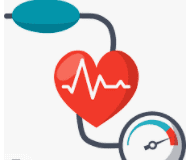Patient Education
This article is tailored for patients. Refer your patients to this article for them to learn more about their condition.
Health Screening: Finding Health Related Problems Early
In today’s busy world, you need to focus on many things at one time. You have to deal with your business, personal responsibilities, social life, and anything else that catches your attention. It is challenging to manage these things in a well-organized manner without any help. And with that, people tend to forget about their health.
It is easy to see why — as long as they feel fine, there’s no reason to worry. However, some diseases don’t show any symptoms for a long time, only to become an intolerable burden once they do. Fortunately, the earlier they are diagnosed, the more likely they are to be cured.
Health screening allows you to do just that. It involves a series of tests and examinations meant to find any health-related problems early on, so you can do something about them before they cause serious harm. So although it may seem like a hassle, it might be an excellent start to keeping your body healthy and free of potential diseases. Read on to learn more.
Why Is Early Detection Important?
The main reason early detection is so important is that it allows you to start treatment as soon as possible. Diseases such as cancer or diabetes can be managed if they are caught early, but the chances of a successful treatment diminish as the disease progresses. Visiting a specialist and attending a screening can help you find out if something is wrong, which might even save your life. Additionally, you’ll also have more time to plan this process when it comes to finances (you can learn more about the average cost of life insurance here).
Thanks to the wonders of modern medicine, many diseases that were once considered incurable are now treatable. Breast cancer is one such condition. It can be detected through a simple mammogram or even a self-examination. Thanks to that, the chances of successful treatment are significantly higher than they used to be — with an overall 90% survival rate. In comparison, the survival rate for late-stage breast cancer is only 28%.
What Tests Are Involved?
There isn’t one set of health screening tests that everyone should go through. Instead, it is a combination of various tests that should be based on your age, gender, family history, risk factors, and overall health status. They can be simple tests such as blood pressure or a cholesterol level test, but they can also involve more extensive examinations
Similarly, there is no set time frame when you should go through the health screening tests, but it’s best to do them once a year, or at least once in two or three years. If you or someone in your family has a severe health condition, it’s best to be tested more often, specifically for diseases related to that condition.
Health Screening for Adults
Health screening for adults aims to detect health problems that arise with age, such as heart disease, cholesterol levels, diabetes, and hearing loss. As mentioned above, the tests you undergo will depend on your age, gender, overall health status, and risk factors.
Some of the most common tests for adults include:
- Blood pressure test,
- Body mass index (BMI),
- Cholesterol level test,
- Colorectal cancer screening,
- Diabetes screening,
- Hearing and vision tests,
- Skin cancer screening.
Health Screening for Children and Adolescents
Like adults, children and adolescents should also have their health checked regularly. However, routine checkups are more focused on vaccinations and growth development, as well as behavioral problems such as obesity and eating disorders.
Some of the most common tests for children and adolescents include:
- Hearing and vision tests,
- Behavioral concerns,
- Lead poisoning screening,
- Obesity screening,
- Tuberculosis screening,
Can Screening Prevent Diseases?
In some cases, health screening can help prevent diseases from developing in the first place. For instance, if you are diagnosed with high cholesterol levels, a healthcare professional will advise you to change your diet and start exercising more often. However, this cannot be attributed to screening tests as such.
The best way to prevent diseases is by leading a healthy lifestyle. It includes eating a balanced diet, exercising regularly, and avoiding risky behaviors such as smoking or drinking alcohol excessively. Getting regular medical checkups itself is not enough to prevent diseases.
Are There Any Risks Associated With Health Screening?
Health screening involves many tests and examinations. Although they are mostly safe, some of them may have certain risks associated with them. For instance, a colonoscopy — a test used to detect colorectal cancer — may cause bleeding or perforate the colon.
Similarly, MRI and CT scans use strong magnetic fields and radiation, which may be harmful if used excessively. Therefore, it is best to undergo these tests only if other, less risky tests cannot offer the same results.
The Bottom Line
Health screening is a set of tests and examinations used to find any health-related problems early on, so you can do something about them before they cause serious harm. Although it may seem like a hassle, it may be a good start to keeping your body healthy and free of potential diseases.
Once you start paying more attention to your health, you will find that maintaining it requires more effort than you previously thought. Still, it should not discourage you from trying to lead a healthy lifestyle. Even the smallest of changes can significantly impact your overall well-being and health. So, start introducing small changes into your life and reap their benefits!
